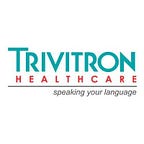Newborn Genetic Screening: A First Line of Defense for Your Baby’s Health
The miracle of childbirth brings immense joy, but also a natural instinct to protect your precious newborn. While you may be busy soaking in those tiny fingers and soft coos, a crucial first step ensures your baby’s long-term health: Newborn Genetic Screening (NBS). This simple yet powerful tool acts as a first line of defense, identifying treatable genetic disorders before they cause harm.
What is Universal Newborn Screening?
Universal Newborn Screening (NBS) is a routine series of tests performed on newborns within the first few days of life. It’s a proactive approach to healthcare, detecting potentially life-threatening or debilitating conditions even before symptoms appear. These disorders, often inherited, can affect a baby’s metabolism, hormone function, or organ development. Early detection allows for prompt intervention and treatment, significantly improving a child’s chances of leading a healthy life.
Why is Newborn Genetic Screening Important?
Many genetic disorders present no visible signs at birth. However, if left undetected, they can lead to serious complications like developmental delays, intellectual disabilities, organ failure, or even death. NBS allows for the identification of these conditions before they cause irreversible damage. With early diagnosis and proper management, many of these disorders can be effectively treated, preventing serious health problems and ensuring a better quality of life for your child.
What Conditions Does Newborn Genetic Screening Detect?
The specific conditions screened for in NBS vary depending on regional guidelines and recommendations. However, some commonly included disorders are:
- Phenylketonuria (PKU): This condition affects the body’s ability to process an amino acid called phenylalanine. Untreated PKU can lead to intellectual disabilities, behavioral problems, and seizures. Early detection and dietary management can prevent these complications.
- Congenital Hypothyroidism (CH): This condition results in an underactive thyroid gland, impacting growth, development, and metabolism. Early diagnosis and hormone replacement therapy can ensure normal growth and development.
- Cystic Fibrosis (CF): CF affects the lungs and digestive system, causing thick mucus buildup and breathing difficulties. Early diagnosis and treatment can improve lung function and overall health.
- Sickle Cell Disease: This inherited blood disorder causes red blood cells to become sickle-shaped, leading to pain, fatigue, and organ damage. Early diagnosis allows for close monitoring and preventive measures.
How is Newborn Genetic Screening Performed?
NBS is a simple and painless procedure. Typically, a few drops of blood are collected from your baby’s heel using a tiny prick. The blood sample is then sent to a specialized laboratory for analysis. Depending on the testing methods used, results may take a few days to a few weeks.
What Happens if My Baby’s Screening Results are Abnormal?
If your baby’s NBS results show a potential issue, don’t panic. An abnormal result doesn’t necessarily mean your baby has a disorder. Sometimes, repeat testing or more specific diagnostic tests are needed to confirm a diagnosis. However, early identification allows healthcare professionals to intervene promptly with appropriate treatment or management strategies. This could involve dietary changes, medication, or specialized therapies.
Trivitron: Leading the Way in Newborn Screening Technology
Trivitron, a global leader in healthcare diagnostics, plays a vital role in Newborn Screening. They offer a comprehensive range of Newborn Screening instruments, including both manual and automated equipment, reagent kits, and modular or fully automated NBS instrumentation. Labsystems Diagnostics OY, a Trivitron division, holds the second position worldwide in Newborn Screening Technology, demonstrating their commitment to providing advanced and reliable solutions for this crucial healthcare practice.
The Importance of Informed Consent
Before your baby undergoes NBS, you will be presented with an informed consent form. This document explains the purpose of the tests, the conditions screened for, and the potential implications of the results. It’s important to read this document carefully and discuss any questions you may have with your healthcare provider.
Newborn Genetic Screening: A Powerful Tool for a Healthy Future
Newborn Genetic Screening is a vital tool for safeguarding your baby’s health. By proactively identifying potential genetic disorders, NBS empowers early intervention and treatment, paving the way for a healthier and brighter future for your child. Don’t hesitate to discuss NBS with your healthcare provider and ensure your newborn receives this crucial first line of defense.
